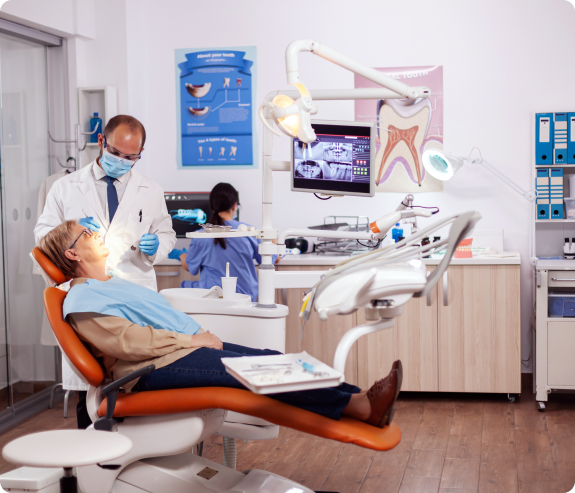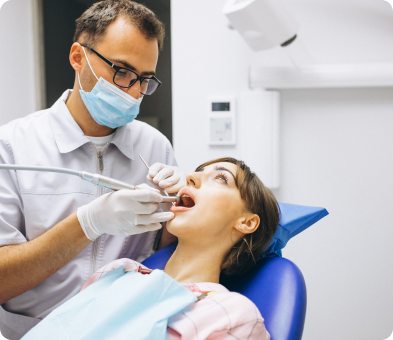We develop custom testing for dental caries and periodontal disease using advanced technology in genomics and a team of geneticists, scientists and physicians; using a fully equipped state-of-the-art laboratory in Canada.
The test is very simple in that a member of the dental team would take a buccal swab from either inside of the patient’s cheek, using the kit provided. Once the sample is taken, it is enclosed into the vial provided. The sample is then sealed in the specimen bag and placed in the mail with the return packaging provided.
Once analyzed, the results are made available through our HIPPA compliant portal, accessible to both dental professionals and the patient or their legal guardian.

Genetic testing can provide valuable insights into a patient's genetic predisposition to dental caries and periodontal disease. This information can help dental hygienists create personalized treatment plans tailored to the patient's specific risk factors and needs. For example, if a patient is genetically predisposed to gum disease, the hygienist may recommend more frequent cleanings or specific preventive measures.

Genetic testing can identify patients at a higher risk of developing dental caries or periodontal disease at an early stage. Dental hygienists can use this information to closely monitor these patients and catch any signs of the disease in its early, more manageable phases.

Dental professionals can use genetic testing results to educate patients about their individual risk factors and motivate them to take better care of their oral health. Patients who are aware of their genetic predisposition may be more likely to adhere to recommended oral hygiene routines and follow through with preventive measures.

Understanding the genetic basis of dental caries or periodontal disease can help dental professionals explain the importance of maintaining good oral health to their patients. Patients who comprehend the genetic component may be more motivated to follow treatment and maintenance recommendations.

Genetic testing can inform the selection of appropriate preventive strategies. Dental professionals can recommend specific oral hygiene products or treatments that align with a patient's genetic risk profile, potentially improving the effectiveness of preventive care.

In cases where patients have a high genetic risk of dental caries or periodontal disease, dental hygienists can refer them to specialists or periodontists for more specialized care and intervention. This can lead to more timely and targeted treatment, improving the patient's overall oral health outcomes.

Genetic data collected from patients can contribute to ongoing research efforts to better understand the genetic factors influencing periodontal disease. Dental professionals can play a role in advancing our knowledge of the disease by facilitating genetic testing and data collection.
